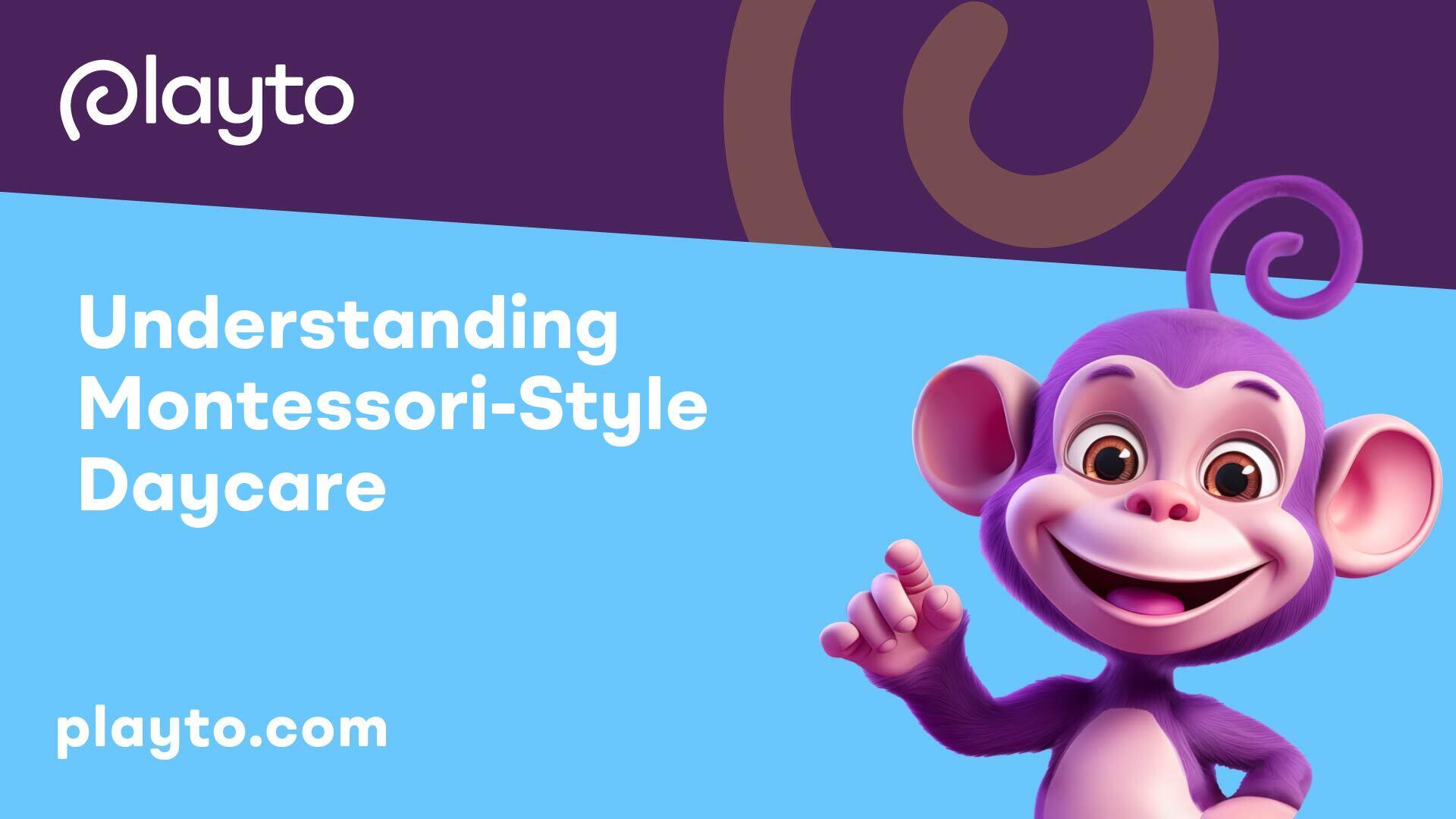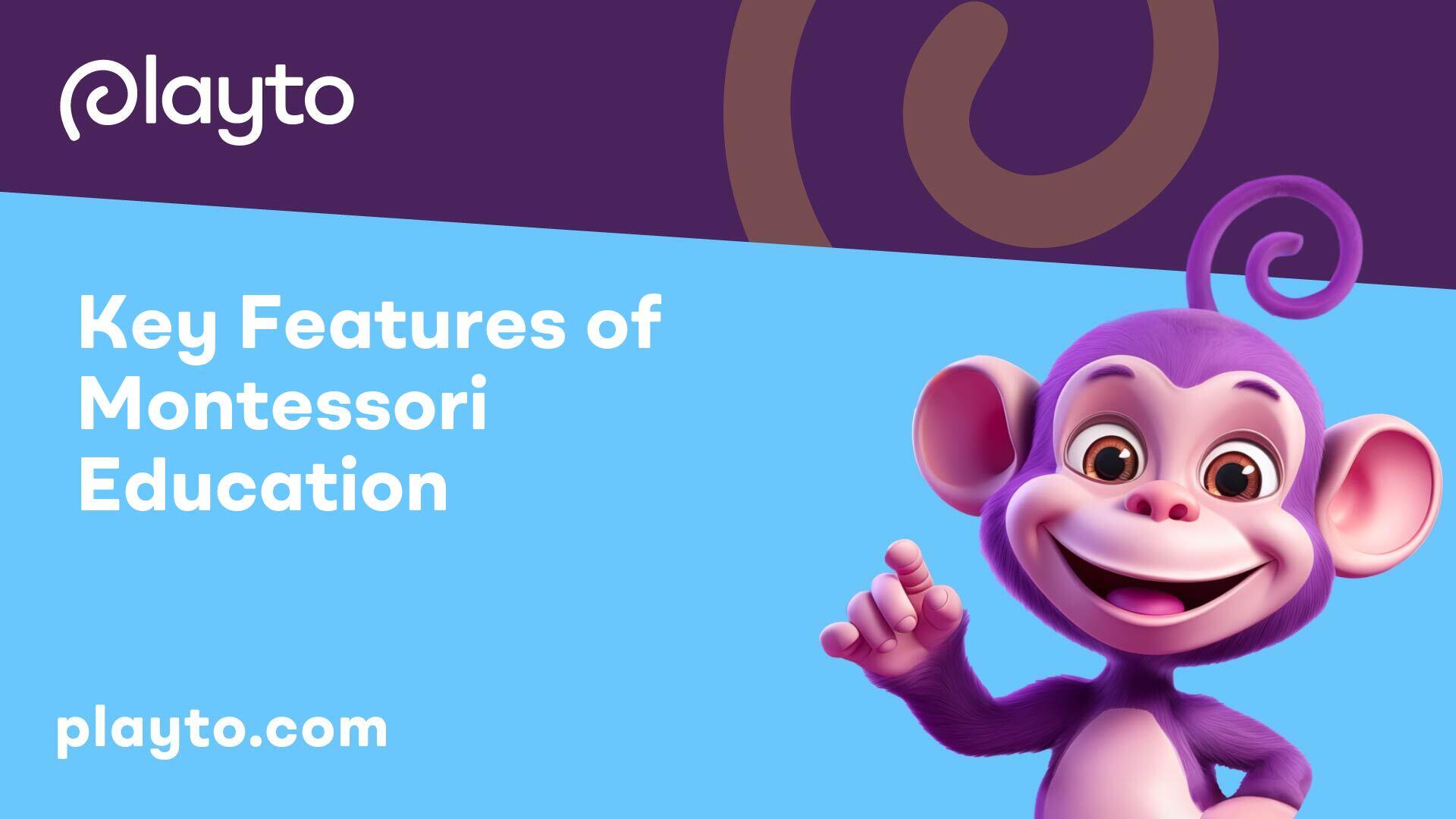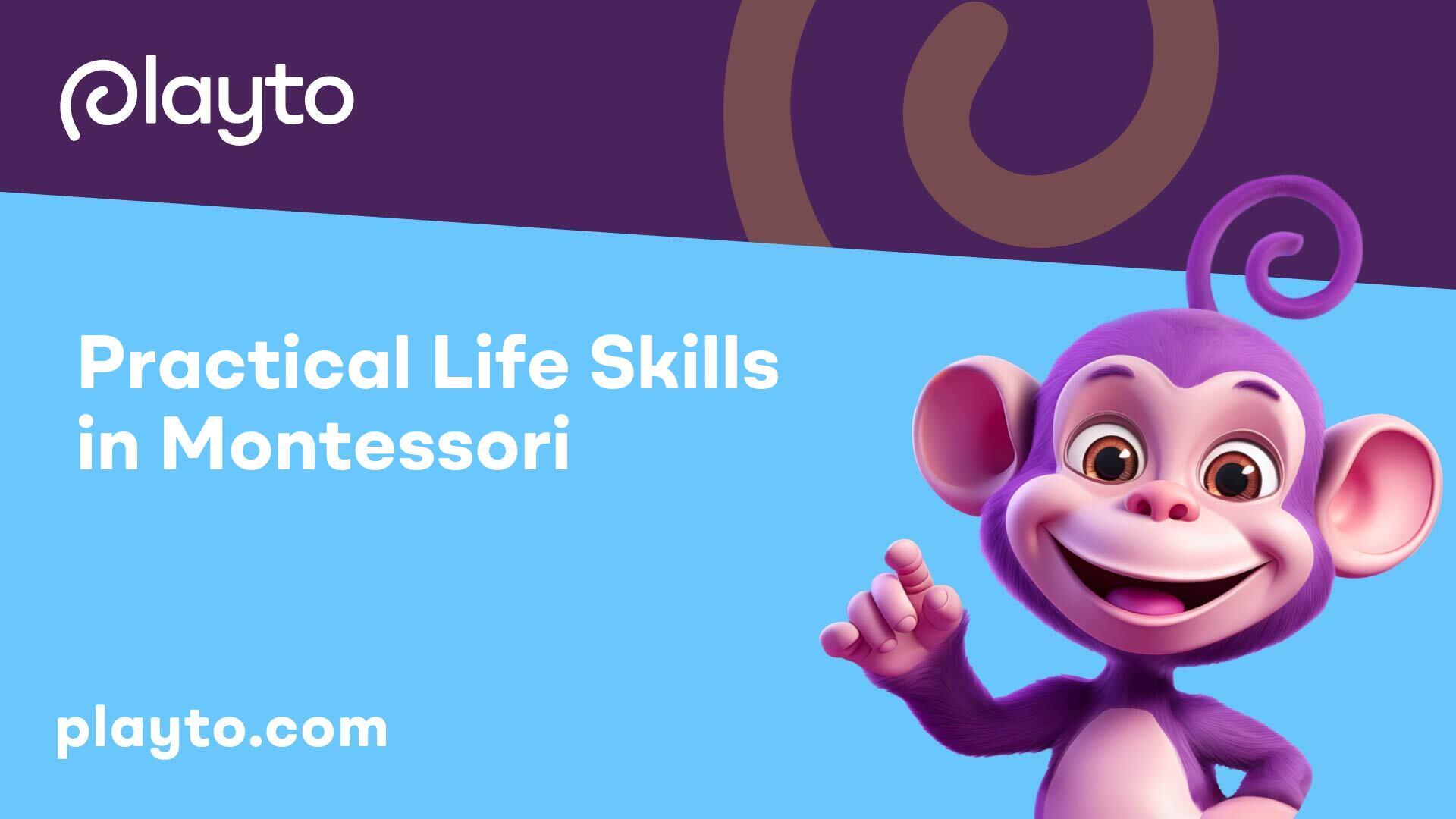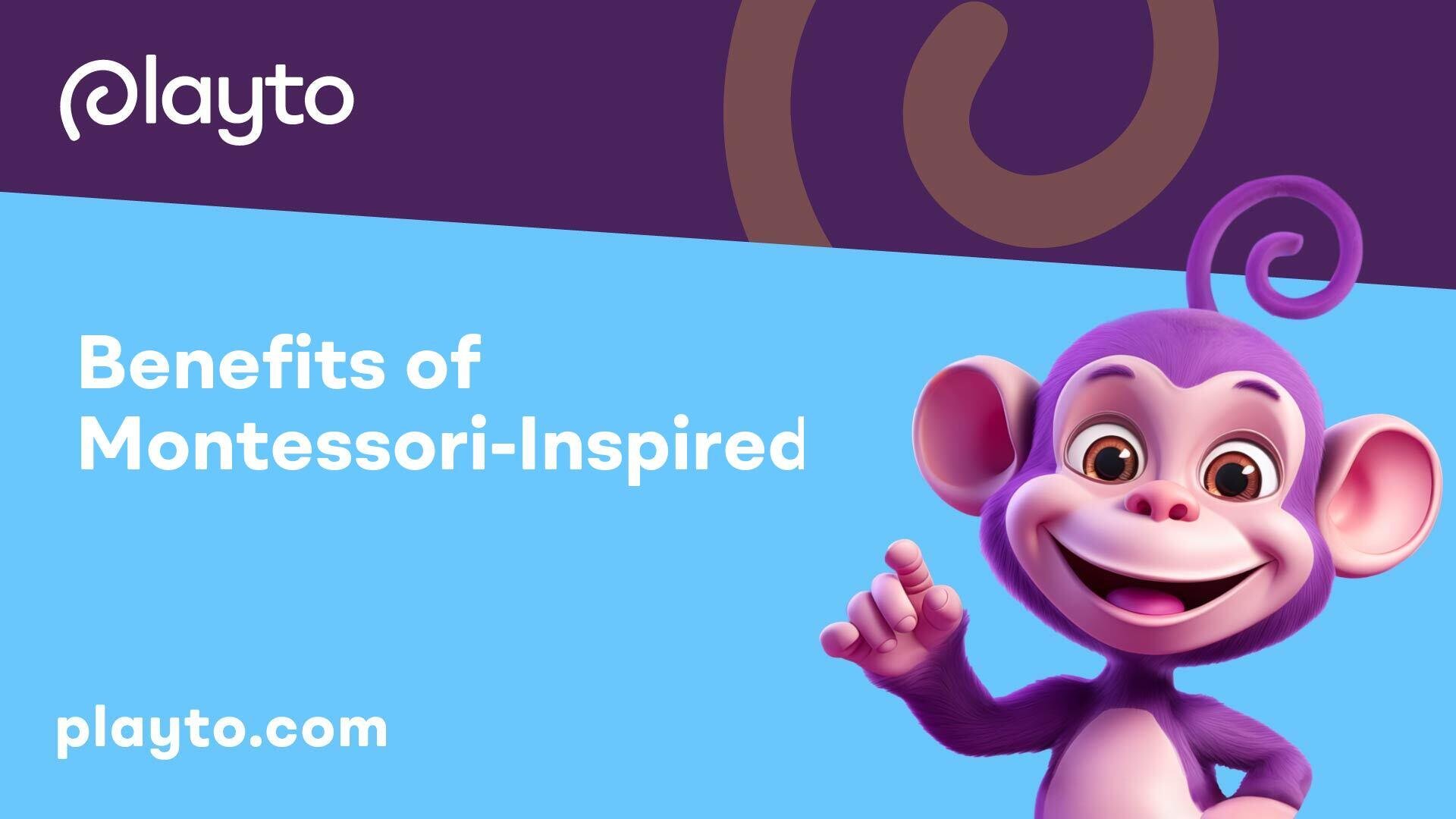
Understanding Montessori-Style Daycare
Delving into the realm of Montessori-style daycare, it's essential to grasp the foundational principles and advantages that this educational approach offers. This introduces a structured overview of the Montessori method and the notable benefits it brings to daycare settings.
Montessori Method Overview
The Montessori method is renowned for its emphasis on self-paced, individualized learning that nurtures a child's innate curiosity and independence. This approach encourages children to explore and learn through hands-on experiences, child-directed work, and uninterrupted work periods.
In a Montessori environment, children are provided with specially designed materials and activities that cater to various aspects of their development, including practical life skills, sensorial experiences, language, mathematics, and cultural exploration. The method recognizes the interconnectedness of intellectual, physical, emotional, and social growth in children, fostering holistic development.
Benefits of Montessori Daycare
The advantages of Montessori daycare extend beyond traditional educational models. Children flourish in a Montessori-inspired environment, where they have the freedom to choose their work, move independently, and engage in hands-on learning experiences. This autonomy fosters a sense of responsibility, self-confidence, and a love for learning [2].
One distinctive feature of Montessori daycare is the integration of uninterrupted blocks of work time, typically lasting 2+ hours. During these sessions, children engage in selected activities, complete them at their own pace, clean up, and transition to the next task. This structure promotes concentration, coordination, independence, and a sense of order in the young learners [3].
Research indicates that the Montessori education system has a substantial positive impact on both academic and non-academic outcomes. Studies spanning preschool to middle-to-high school levels across various countries have demonstrated that Montessori students consistently outperform their counterparts in traditional education settings. The superiority is evident in academic achievements, with Montessori learners showcasing better performance by approximately 1/4 of a standard deviation, along with improved non-academic outcomes by 1/3 of a standard deviation.
Embracing a Montessori-style daycare approach not only cultivates a rich learning environment for children but also sets a strong foundation for their academic and personal growth, highlighting the holistic benefits of this progressive educational model.

Key Features of Montessori Education
When exploring the educational approach of Montessori, two key features stand out: self-paced learning and peer-to-peer interaction. These elements play a significant role in shaping the educational experience of children in Montessori-inspired daycare settings.
Self-Paced Learning
Montessori education promotes self-paced, independent learning through a variety of methods, including the use of Montessori materials, child-directed work, and uninterrupted work periods. This approach allows children to learn at their own pace, focusing on areas of interest and moving forward as they master each concept. By giving children the freedom to explore and discover at their own speed, Montessori encourages independent thinking and problem-solving skills. For more insights into incorporating this educational approach, check out our article on incorporating STEM learning in daycare.
Peer-to-Peer Interaction
In a Montessori setting, peer-to-peer interaction plays a vital role in the learning process. Children are placed in multi-age classrooms where they have opportunities for peer-to-peer learning. This unique structure enhances social interaction and communication skills, fostering collaboration and empathy among children. Interacting with peers of different ages allows children to learn from one another, building a sense of community and mutual respect. For further exploration of social skills development, consider our article on encouraging emotional regulation in preschoolers.
By promoting self-paced learning and peer-to-peer interaction, Montessori education provides a well-rounded approach to education that nurtures not only academic growth but also social and emotional development. These key features create a supportive and engaging learning environment for children in Montessori-inspired daycare settings, fostering a holistic approach to early childhood education.

Practical Life Skills in Montessori
In a Montessori learning environment, practical life activities play a significant role in fostering the development of essential skills in children. These activities not only focus on academic growth but also on enhancing life skills that are crucial for a child's overall development. Two key aspects of practical life skills in Montessori education are Gross Motor Skill Development and Independence and Confidence Building.
Gross Motor Skill Development
Gross motor skills involve the coordination of large muscle groups and movements, essential for physical activities and overall development. In Montessori-inspired settings, practical life activities such as outdoor play, yoga, dance, and engaging in physical games contribute significantly to the development of gross motor skills.
By engaging in activities that require gross motor skills, children develop coordination, balance, strength, and spatial awareness. These skills are fundamental for tasks like running, jumping, climbing, and participating in sports activities. The emphasis on gross motor skill development in Montessori education aids in building a strong physical foundation for children, promoting their overall well-being and physical competence.
Independence and Confidence Building
Independence and confidence are key values nurtured through practical life activities in a Montessori environment. According to Triangle Learning Center, Montessori-inspired environments promote independence by providing children with opportunities to engage in tasks that foster self-sufficiency and responsibility.
In Montessori, children are encouraged to participate in real-life activities such as food preparation, personal hygiene practices like handwashing and brushing teeth, and etiquette training. By using child-sized tools and equipment within their reach, children learn to perform tasks independently while developing a sense of accomplishment and self-reliance.
These experiences of independence and self-reliance inculcate a strong sense of confidence in children, empowering them to tackle new challenges with resilience and a positive attitude. The Montessori approach promotes a growth mindset by allowing children to make choices, solve problems, and learn from their experiences, ultimately building a foundation of confidence that extends beyond academic achievements.
By focusing on Gross Motor Skill Development and Independence and Confidence Building through practical life activities, Montessori education not only prepares children for academic success but also equips them with essential life skills that support their holistic growth and development.
Creating a Montessori-Inspired Environment
In a Montessori-inspired daycare setting, creating an environment that nurtures independence and fosters exploration is key to supporting children's development. Two essential aspects of this environment include setting up a "Yes Space" and selecting age-appropriate toys to encourage meaningful play experiences.
Setting Up a "Yes Space"
A fundamental concept in Montessori education, the idea of a "Yes Space" is to provide a safe and engaging area where children, particularly babies and toddlers, can play freely without constant supervision. Coined by Janet Lansbury, this concept emphasizes the importance of offering a designated space, such as the living room or playroom, where children can explore without unnecessary restrictions [5].
By creating a "Yes Space," caregivers can help children build confidence and independence as they navigate their surroundings. This environment allows children to engage in activities and play experiences that promote curiosity, creativity, and self-discovery.
Choosing Age-Appropriate Toys
Selecting the right toys for a Montessori-inspired environment is crucial in promoting independent play and fostering a love for learning. Children are more likely to engage with toys that provide an appropriate level of challenge – not too easy to be boring, yet not too difficult to be frustrating.
Age-appropriate toys in a Montessori daycare setting should be carefully curated to support the development of various skills, such as fine motor skills, problem-solving abilities, and creativity. Toys that encourage hands-on exploration and open-ended play can stimulate children's imagination and cognitive development.
By offering toys that align with the Montessori philosophy of hands-on learning and independent exploration, children can engage in meaningful play experiences that promote active participation in their education. This approach not only nurtures a child's natural curiosity but also instills a sense of joy and fulfillment in the learning process [6].
Incorporating a "Yes Space" and age-appropriate toys in a Montessori-inspired daycare environment can provide children with the freedom and autonomy to explore, discover, and learn at their own pace. These foundational elements support children's holistic development and lay the groundwork for a positive and engaging educational experience.
Encouraging Independent Play
Encouraging independent play is a valuable aspect of daycare activities, fostering a child's creativity, problem-solving skills, and self-reliance. By creating an environment that promotes independent play, children can explore and engage in activities at their own pace. This section will delve into the benefits of independent play and the importance of quality interaction time within a Montessori-inspired daycare setting.
Benefits of Independent Play
Independent play offers numerous benefits for children's development, including enhanced creativity, improved decision-making skills, and the opportunity for self-discovery. When children engage in independent play, they learn to explore their interests, make choices, and develop a sense of autonomy. This type of play also encourages problem-solving and critical thinking as children navigate their play environment without constant direction.
Creating a space that encourages independent play, where children are free to choose their activities and explore without constraints, promotes a sense of confidence and self-reliance in young learners. By allowing children the freedom to play independently, educators and caregivers support their emotional and cognitive growth, laying the foundation for lifelong learning and exploration.
Quality Interaction Time
Quality interaction time between caregivers, educators, and children is essential to fostering a supportive and nurturing environment for independent play. Engaging in "Together Time" activities, such as play sessions and collaborative tasks, helps build strong bonds and trust between adults and children. These shared experiences not only strengthen relationships but also prepare children to engage in independent play confidently.
Quality interaction time also includes one-on-one moments where caregivers and children engage in meaningful activities together. This individualized attention provides children with a sense of security and validation, fostering a positive relationship that encourages them to explore independently. By balancing shared activities with moments of independence, children can develop a healthy sense of autonomy and initiative.
To optimize independent play, it's important to limit overstimulation from external sources, such as screens and electronic toys. By minimizing distractions and focusing on hands-on, engaging activities, children can develop longer attention spans and a deeper interest in self-directed play. Providing age-appropriate toys that offer the right level of challenge, neither too simple nor too complex, encourages children to immerse themselves in independent play and explore their creativity.
In a Montessori-inspired daycare environment, emphasis is placed on nurturing a child's natural curiosity and fostering independence through play. By encouraging independent play and ensuring quality interaction time, caregivers and educators can support children in developing essential skills for learning and growth. The positive impact of Montessori education on academic and nonacademic outcomes further underscores the value of promoting independent play within daycare settings.
Montessori at Home
Bringing the essence of Montessori education into the home environment can significantly benefit a child's development and learning journey. By creating a Montessori-inspired home setup and engaging in purposeful activities, caregivers can nurture a child's inquisitive nature and foster a love for learning.
Montessori-Inspired Home Set Up
Providing a Montessori-inspired home setup doesn't have to be costly. Triangle Learning Center emphasizes that affordable techniques can ensure that a child receives optimal learning opportunities without financial strain. Adapting Montessori methods at home involves tailoring learning activities to various developmental stages, from infants to kindergarteners, to meet the child's unique needs and growth [7].
Parents or caregivers play a vital role in a home Montessori environment, acting as guides who observe the child's interests and developmental needs. By creating an atmosphere of respect, trust, and freedom within limits, caregivers can facilitate learning experiences that cater to the child's individual journey [7].
Montessori-Inspired Activities
Engaging children in Montessori-inspired activities at home can enhance their cognitive, social, and emotional development. Practical life activities, sensory-based learning materials, and incorporating Montessori toys are key components of creating a prepared Montessori environment at home. These activities foster independence, enhance creativity, and develop essential motor skills in children [7].
By incorporating Montessori-inspired toys such as wooden blocks, counting rods, puzzles, and musical instruments, children can engage in play that promotes cognitive and physical skill development. These toys provide children with opportunities to enhance problem-solving abilities, motor skills, and overall cognitive development in a fun and age-appropriate manner [8].
Creating a nurturing and stimulating Montessori environment at home not only supports a child's educational journey but also strengthens the bond between caregivers and children. By implementing Montessori principles in the home setting, caregivers can empower children to explore, learn, and grow in a setting that values independence, creativity, and holistic development.
Montessori for Special Needs
In the realm of DayCare, Montessori education stands out for its ability to cater to children with special needs through individualized learning paths and providing stability and consistency. This approach ensures that all children, regardless of their unique requirements, are supported in their learning journey, fostering a nurturing environment for growth and development.
Individualized Learning Paths
One of the core principles of Montessori education is the emphasis on tailored learning experiences. For children with special needs, this means that their educational path is personalized to suit their specific requirements, strengths, and challenges. By creating individualized learning paths, children can progress at their own pace and explore subjects in a way that aligns with their learning styles and abilities.
The Montessori method recognizes that each child is unique and may require different approaches to learning. By offering customized learning paths, children with special needs can fully engage in the educational process and reach their full potential with the necessary support and guidance.
Stability and Consistency
Montessori education provides a stable and consistent environment for children with special needs, allowing them to thrive in a familiar and structured setting. One key aspect of this stability is the opportunity for children to spend up to three years in the same classroom with the same teacher. This continuity fosters a sense of security and belonging, enabling children to build trust and rapport with their educators and peers [1].
By maintaining a consistent learning environment, children with special needs can develop a sense of routine and predictability, which are essential for their overall well-being and academic progress. The familiar surroundings and established relationships within the Montessori classroom create a supportive foundation for children to explore, learn, and grow at their own pace.
Incorporating the principles of individualized learning paths and providing stability and consistency, Montessori education offers a nurturing and inclusive space for children with special needs to flourish and reach their full potential in a supportive and empowering environment.
Academic and Non-Academic Outcomes
When exploring the impact of Montessori education, it is evident that this approach provides significant benefits across both academic and non-academic domains. Studies have consistently shown that Montessori education offers advantages that outperform traditional educational methods.
Positive Impact of Montessori Education
A comprehensive meta-analysis of 32 studies conducted on Montessori education revealed that this approach has a positive impact on a wide range of academic and non-academic outcomes. The analysis highlighted that Montessori education outperformed traditional education in various aspects. The effect sizes for academic outcomes were notable, with high-quality evidence supporting improvements in language and mathematics skills. Particularly, the effect size for a composite of all academic outcomes was significant at 0.24. Moreover, for non-academic outcomes, the impact of Montessori education was prominently observed in enhancing social skills, executive function, and creativity, with effect sizes ranging from 0.23 to 0.41.
Studies Showing Montessori Outperformed
A review encompassing studies from 1967 to 2020 emphasized the superiority of Montessori education over traditional methods. These studies provided compelling evidence that Montessori students performed better in academic and non-academic areas compared to their counterparts in traditional educational settings. The review noted that the impact of Montessori education extended beyond academic excellence to include aspects such as self-regulation, social skills, and overall well-being in school. The studies demonstrated that Montessori students consistently outperformed their peers, showcasing the effectiveness of this educational approach across various age groups and settings.
In conclusion, the evidence overwhelmingly supports the positive impact of Montessori education on children's development and learning outcomes. By embracing Montessori-inspired daycare activities, children can experience enhanced academic performance, improved non-academic skills, and a more holistic approach to education that fosters well-rounded individuals.
References
[1]: https://mybrightwheel.com/blog/montessori-method
[2]: https://montessoriacademy.com.au/montessori-education/principles-of-montessori-education/
[3]: https://amshq.org/About-Montessori/Inside-the-Montessori-Classroom/Early-Childhood
[4]: https://www.ncbi.nlm.nih.gov/pmc/articles/PMC10406168/
[5]: https://www.montessoriinreallife.com/home/2019/7/23/encouraging-independent-play
[6]: https://www.beibeiamigos.com/10-surprising-benefits-of-montessori-education-every-parent-should-know
